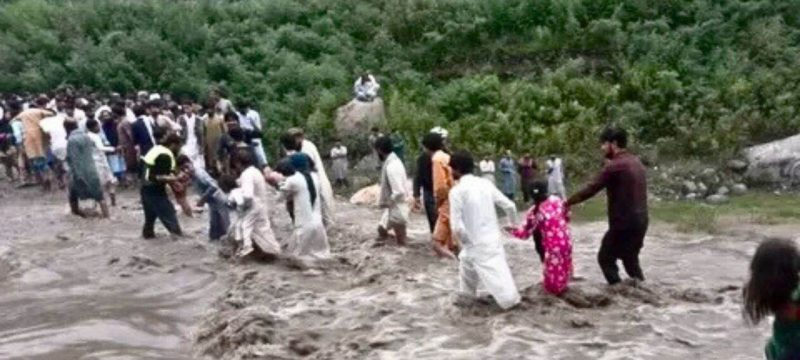Khyber Pakhtunkhwa is closing colleges and universities across the province in response to a growing heavy rain threat that has already caused widespread damage in parts of Pakistan. Authorities say the decision aims to protect students and staff as monsoon rains continue to lash northern regions.
The provincial education department announced that all higher education institutions will remain closed until conditions improve. Officials stressed that safety must come before routine classes, especially as the risk of flooding and landslides increases in mountainous districts.
Heavy rain threat forces closures in Khyber Pakhtunkhwa
The order comes after disaster management authorities issued alerts about more downpours in the coming days. Experts warn that rivers and nullahs are already at dangerous levels, making travel to educational campuses unsafe. In addition to school closures, emergency teams have been placed on high alert to deal with potential flash floods and landslides.
Earlier reports revealed the deadly impact of recent rainfall across the province and beyond. At least 314 people have died in rain-related incidents nationwide, with Khyber Pakhtunkhwa among the hardest-hit regions. According to officials, the rains and flash floods have left hundreds dead across Khyber Pakhtunkhwa, while thousands more have been displaced from their homes.
Colleges closed as safety becomes top priority
Education authorities emphasized that the decision to shut down colleges and universities is temporary, but necessary to avoid further loss of life. Students in areas such as Swat, Dir, and Malakand face particular risks due to landslides that often block main routes to campuses.
Local residents have also expressed concern about the recurring pattern of destruction during the monsoon season. Many communities are calling for stronger flood defenses and better drainage systems to protect lives and infrastructure.
Rising calls for preventive measures
The heavy rain threat has once again exposed the province’s vulnerability to natural disasters. Experts believe that improved forecasting, rapid evacuation plans, and resilient infrastructure could reduce the scale of damage. Social workers and NGOs are urging both federal and provincial governments to prioritize disaster preparedness.
While the immediate focus remains on keeping students safe, the broader challenge lies in ensuring that learning continues despite weather disruptions. Education officials are reportedly considering online alternatives if campuses remain closed for an extended period.
As heavy rain continues to pose risks, authorities in Khyber Pakhtunkhwa remain on high alert. The closure of colleges and universities serves as a reminder that public safety must always come before normal routines.





